I Came to Teach in Indonesia & Stayed Long Enough to Learn
Fourteen Years in Indonesia—What It Meant to Be an American Teacher, Foreigner, and Friend
You know, a lot has happened since I moved to Indonesia. I was 26, to be exact, when I first arrived in 2011. Arriving fresh after graduating from Portland State University, I was young, curious, and ready to explore the world. Not exactly dumb, but definitely inexperienced, and still figuring out who I was.
Fourteen Years, and Hundreds of Lessons
I arrived in Indonesia with a couple of suitcases, one job offer, and little idea what I was getting into.
What was meant to be a one or two-year teaching adventure turned into a fourteen-year life chapter. It was one filled with joy, culture shock, professional growth, unexpected friendships, and moments of deep personal reflection.
I built a career.
I built a family.
I built a home.
But more than anything, I built myself.
And now, as I prepare to leave Indonesia and return to the U.S., I find myself pausing to take it all in. This is not a farewell letter—it’s a reflection on what I learned here about teaching, identity, and learning itself. Somewhere along the way, I didn’t just grow professionally, I discovered a love for books and lifelong learning that reshaped my purpose. That discovery led me to start BookMattic, and eventually the Learning to Learn Well newsletter, my platforms dedicated to helping others grow as readers and learners. And it’s one of the driving forces behind my return to the U.S., where I believe I can build something even more impactful.
All of this happened to me in a place that was never meant to be permanent… but somehow became part of me.
This ‘mini-book’ isn’t structured in a strict chronological order. Life doesn’t always unfold that way, and neither did my time here. Instead, what follows are personal stories, reflections, and takeaways that fall under four central themes:
Work
Friendship
Cultural Perspective
Plus, an important chapter on how I learned to love learning.
I tried to write it as a lesson anyone in a similar situation can learn from. The pieces all fit together to form a cohesive journey, one that I hope you’ll find meaningful. Each section touches on important milestones, realizations, and relationships that defined this chapter of my life.
If you’d like to explore a specific theme, you can read it straight through or skip to the sections that resonate most. Either way, I’m glad you’re here.
Thank you again for being part of this story.
Warmly,
Matt
Table of Contents
Work Opportunities
From classroom nerves and failed business, to career clarity
What was my first job in Surabaya, and how did it differ from Cibubur?
What moments shifted my perspective on teaching and leadership?
How did my career evolve in unexpected ways over these 14 years?
Why I’m leaving now—and where I hope to go next
Discovering a Love for Learning
The book that changed everything—and the brand that followed
How a single book sparked a lifelong journey of reading and reflection
The birth of BookMattic, and why it became central to my identity
Why the U.S. offers the right space to grow this passion into something bigger
Friendship and Belonging
Finding connection in a culture of distance
Which friendships—local or international—shaped my experience most?
How did building relationships here differ from back in the U.S.?
What did those bonds teach me about trust, presence, and shared experience?
Cultural Acceptance and Outlook
Living between two worlds—and learning from both
When did I first feel truly accepted in Indonesia?
What stood out to me about the Indonesian way of life?
Which cultural differences challenged me—and helped me grow?
You can also choose to watch the video I made about the same topic as this edition of the Learning to Learn Well newsletter.
In the Far-off Land of Cibubur, Indonesia
That first year was the hardest. I was living in a small suburb of Jakarta called Cibubur. It wasn’t exactly far from the city, but it wasn’t close either. Because of the traffic, traveling into town could be downright miserable. It would take two hours just to go 10 miles. The people I worked with were friendly enough, but after a while, the surface-level relationships started to feel a little isolating. I had just come from college, where close friends and constant energy surrounded me. And, oh my, did I miss my family and friends in the U.S. Suddenly, I found myself in a quiet, unfamiliar place, trying to piece together a new kind of life.
When I first started teaching, I barely knew what I was doing. I remember walking into my first class, heart pounding. The students were only six years old, but I was terrified. I had no prior experience, and I was worried about how they’d see me—whether I’d be taken seriously, whether I’d make a fool of myself. That fear stuck with me for a while. But over the years, I found my rhythm. I learned. I grew. Today, I can confidently say that I am a seasoned educator who knows how to lead a classroom and connect with students in meaningful ways.
As I was saying, my relationships in the beginning weren’t all that close, and that was disheartening for me. On top of that, I was living a city away (an hour-long flight) from my girlfriend at the time, who is now my wife. She was living in Surabaya, and the distance only added to the sense of isolation I was already feeling.
And to be honest, a major reason why I only stayed in Jakarta for a year is that I didn’t like my boss at the school in Cibubur, and she didn’t like me. She always played favorites, and it felt like no matter what I did, I couldn’t earn her respect. There wasn’t any incident or conflict between us—nothing I did wrong, at least not that I was aware of. But I always felt different. Out of place. Like I didn’t belong in the little circle she had formed with the other staff. Maybe it was because I wasn’t British, or maybe it was just a personality mismatch. Whatever it was, it left me feeling undervalued.
After completing my one-year contract, I made a decision. I moved to Surabaya. That experience gave me even more reason to move. I wanted to be closer to someone who truly appreciated me for who I was—my girlfriend at the time, now my wife. I needed to be somewhere that felt more like a home and less like a place I was simply enduring. That’s what ultimately pushed me to leave Jakarta and take a chance on Surabaya—and I’m glad I did. It turned out to be one of the best choices I’ve ever made, not just because I could finally be close to her, but also because I landed in a community that felt warm and welcoming. It was a refreshing change.
That said, even in Surabaya, I still wrestled with some of the same challenges. While the friendships I made there were friendly and enjoyable, many of them, early on, in retrospect, felt somewhat surface-level. I think I was craving deeper, more meaningful connections, the kind that take time and shared struggle to build. And yes, I had my fair share of struggles, emotional ups and downs, cultural adjustments, homesickness, but through all of that, I kept moving forward and made some great friends and connections by the end of my time here.
In the end, I came out stronger. I built something real. I came out on top.
A Home Away From Home in Surabaya
My first job when I moved to Surabaya from Cibubur was actually with the same company, EF English First, but at a different branch, under a different owner. And honestly, the experience in Surabaya was so much better than the one I had in Jakarta.
While my boss in Jakarta showed clear favoritism toward other employees, in Surabaya, everything changed. My boss there, Julian, was level-headed, approachable, and communicative. He could give clear direction and also hold a meaningful conversation. I also worked with a lead teacher named Gary, who, sadly, passed away a few years ago, but was such a talented educator with an outgoing and hilarious personality. I have some great memories of working with him and the entire team. Coincidentally, I also worked with someone from Portland, Oregon, too, which felt like I had a piece of home with me in our friendship. Overall, they were just excellent coworkers. The environment felt healthier, and it made a big difference in how I saw myself as a teacher and team member.
What made them great was our sharing spirit. The teaching tips and advice were especially useful when dealing with challenging students or tricky classes. If someone was struggling, others would jump in with suggestions or offer materials that had worked for them. It wasn’t co-teaching since we all had our own classes, but there was a real sense of collaboration. We looked out for each other, and that made a big difference.
That environment helped me grow my confidence, especially going into my second year of teaching. I began to realize how important teamwork is. In my first job back in Cibubur, I often felt like I was figuring things out alone. But in Surabaya, even though it wasn’t perfect, I started to find my place. I had a team I could count on. That made all the difference.
Those early years of teaching shaped me, not just as an educator, but in how I interact with coworkers and supervisors. I learned to communicate with respect, to be part of a team, and to observe what effective leadership looks like. Seeing how a strong leader ran things with clear communication, consistent expectations, and a well-stocked library of materials left a lasting impression on me.
However, I wasn’t always able to be the best of friends with the people I worked with, and in hindsight, a lot of that had to do with my maturity at the time. I was still caught in a college-era mindset, where partying felt like the priority. Almost every week, I’d go out, as if that were the most important thing in my life. Looking back now, I regret how much time and energy I spent chasing those moments. Time that could have been invested in building deeper relationships, strengthening my professional skills, or simply being more present in the life I was creating.
Unfortunately, that way of thinking stuck with me for a while. I’ve gotten better at managing it over time, but back then, I was still going out late pretty often—staying up until two or three in the morning and thinking I’d be fine the next day. But the truth is, I wasn’t. The next day always felt like a waste. I’d be tired, dragging, not really present—whether it was at work, with my family, or even just trying to get something done.
Eventually, I started to realize partying wasn’t worth it. Sure, it’s fun to go out and enjoy yourself once in a while, but not when it comes at the cost of your energy and focus the next day.
These days, I’d much rather have a relaxed time with friends or family, head to bed at a decent hour, and wake up feeling refreshed. That way, I can make the most of the next day by being productive with work, getting into a creative project, or just spending quality time with the people I care about.
I ended up teaching at EF English First for a total of four years until I moved to Surabaya Grammar School in 2015. Another big life event happened in 2013 when I got married, and around that time, I knew I needed a change, mainly for financial reasons. Even though the environment at EF was great, and I loved the schedule, especially after years of college, I had to make the move up. Imagine starting work at noon and ending at 7:30 pm. I wouldn’t go back to that schedule now with a family, but at that time, it was great for a young couple without kids. I genuinely liked my coworkers and felt supported. But the pay just wasn’t enough to support a growing family. If the salary had been more competitive, I might have considered staying.
So I decided to move on to an International School (traditional school) called Surabaya Grammar School, which offered a significantly higher salary. It was a practical decision and one that opened new doors for me.
My Time at Surabaya Grammar School (SGS)
The transition from EF English First to SGS was also jarring in terms of support. On my very first day, I was handed a textbook with no real training or onboarding—just: “Here, use this and go teach.” Expectations were vague at best. And honestly, that set the tone for the rest of my experience there. It felt like academics were more of a formality than a true focus. The educational foundation was weak, and expectations were low, not at all what I had anticipated from an international school.
When I moved to Surabaya Grammar School (SGS), I experienced a different kind of cultural shock. Although it was labeled an "international school," it felt much more like a business than an educational institution. When I first started, classes were already packed with around 25 students each. Every year after that, more rooms—including the teachers’ lounge—were converted into classrooms. Eventually, we lost the shared teacher space altogether, and morning meetings became a thing of the past. Instead of collaborating face-to-face, communication shifted almost entirely to WhatsApp. Once in a while, we’d have a weekly meeting in one of the larger classrooms, but it wasn’t the same.
And yet, I stayed at SGS for six years—from 2015 to 2021. There were reasons for that, which I’ll explain in just a moment.
Also, one of the biggest cultural differences I noticed while working in Indonesia, especially with local staff, was how formal the environment could be. People consistently referred to one another using titles: Mr. This, Miss That, Mrs. So-and-so. It was respectful, yes, but also created a sense of distance. And the hierarchy was unmistakable. It was very top-down—whatever management said, went. Your voice as a teacher didn’t always feel like it mattered much. It seemed to reflect a broader cultural tendency I’ve noticed in many Asian contexts, where authority isn't often questioned openly.
But a positive I had was that there were many opportunities to work with a much more diverse team: British, Canadian, Australian, Indonesian, and American—you name it. That exposure really opened my mind. I began to see the value in working with people from different cultural backgrounds, languages, and teaching philosophies. It expanded my worldview and made me a better communicator and collaborator, both inside and outside the classroom.
I worked with a lot of level-headed, down-to-earth colleagues, and we had some genuinely great conversations. Over the years, many people came and went—some stayed for a year or two, others for longer. Among those who stuck around, people like Josh, Rick, and Cynthia stood out. They were fantastic coworkers and just genuinely good people. I also built strong friendships with Alfred and Aggie, two colleagues originally from South Africa. I worked with them for about three years, and while they’ve since moved to the U.S., we’ve stayed in touch. From our phone conversations, it sounds like they’re living a beautiful new chapter of their lives—and I couldn’t be happier for them.
Even though I had a few friends at Surabaya Grammar School, I wouldn’t say I had a large circle—and honestly, that was okay. I’ve never been someone who needs 50 friends. I prefer being close with a small handful of people. That way, I can really get to know them, build trust, and share meaningful conversations. So during that time, I did have a few social connections. Every other week or so, I’d get invited out to hang out or grab dinner, which was nice.
But something I was missing—especially after 2017 when my daughter was born—was the chance to build deeper friendships that included our families. I wanted more personal, family-oriented gatherings. We did have a few friends who had kids around the same age, and we’d try to meet up with them whenever we could. Those moments were fun and meaningful—watching our kids play, chatting over coffee, getting a little window into each other’s lives.
Still, even with that, I didn’t feel especially close to most of them. The friendships were good, but they didn’t go as deep as I had hoped.
One full-circle moment: I’m now working with Josh again at Sampoerna Academy, which has been a great continuation of that earlier connection.
Looking back, I’d say my overall experience at SGS was a positive one, especially because of the relationships I built, both with coworkers and with the students. What really brought me joy was being in the classroom, engaging with the kids, watching them grow, and seeing those lightbulb moments when things started to click. That’s what kept me going.
That said, the downside, and it was a big one, was the leadership and management. The school didn’t feel very focused on education. At times, it felt like we were just there to babysit the students. There wasn’t a strong pedagogical vision or support for meaningful learning. Still, the friendships and day-to-day interactions gave me something valuable, and those connections have lasted well beyond my time at the school.
The Moment I Learned to Love Learning
Now, going back just a bit to reflect on one of the best parts of my life, and it most likely wouldn’t have happened if I hadn’t moved to Indonesia in the first place, is when I discovered my love of learning. When I first arrived in Indonesia in 2011, I wouldn’t have described myself as a reader—or even much of a learner, to be honest. I was curious, yes. But most of that curiosity was directed toward people, places, and experiences, not so much toward personal development or lifelong learning.
But curiosity, as I later learned, is one of the greatest driving forces behind learning and creativity. And somewhere along the way, that spark led me to something that would change my life.
It started in 2015, when I picked up a copy of Second Chance by Robert Kiyosaki at a Periplus bookstore. Something about the way the book challenged my assumptions about money, learning, and growth flipped a switch. Suddenly, I realized there was more to life than just working, relaxing, and repeating. Books were a gateway to ideas I had never considered. They are the tools I never knew I needed.
From that moment on, I began reading more intentionally and voraciously. I couldn’t stop. And soon after, I started sharing what I was learning. That’s how BookMattic was born.
At first, it was just a space to reflect on the ideas I found in books. But the more I wrote, the more I felt pulled to turn it into something more: a community, a brand, and maybe even a business. In 2018, I launched my website, YouTube channel, and Instagram presence. I began receiving book promotions and collaborations with authors, mostly from the U.S. and the U.K. It was the beginning of something meaningful.
So I pushed further. I created an online course: The Six Principles of Lifelong Learning. The content was solid in principle, and I learned a lot from building it, but it still needed refining. Despite my passion and effort, the course never gained much traction. Few people signed up, and eventually, I had to take a step back right around the time I joined Sampoerna Academy and was thoroughly entrenched in my Master of Education.
At the same time, life was moving fast. My daughter was born in 2017. My mother passed away a few years later at the beginning of the pandemic in 2020. Emotionally and logistically, I was overwhelmed.
As much as I loved creating content and promoting books, I was doing everything on my own as a solopreneur. And truthfully, I burned out. The market for lifelong learning in Indonesia just wasn’t big enough. Even with access to the internet, I wasn’t able to fully sustain myself with my fledgling business that eventually was grounded. I learned that where you live and who you meet in person truly matter and contribute to the successful launch of a brand. Many of the people interested in working with me in Indonesia only wanted to learn English, not how to learn better or read more deeply.
That’s when I decided to take a step back and pursue something more stable. I joined Sampoerna Academy, not only because of the better pay, but because it felt like a place where I could refocus my energy in a healthy and structured environment. It was a place where I could practice what I preach.
Reader, please note that BookMattic remains a crucial part of my identity. Among others that come first, it’s one of the main reasons I’m returning to the U.S. I believe that with more access to resources, partnerships, and a wider audience of lifelong learners, I’ll be able to build something even stronger. It’ll be something that blends my love for teaching, content creation, and personal growth into a sustainable mission.
A Bit About Living in Indonesia as a ‘Bule’ (Foreigner)
Before I move on to the next part, there’s something I want to get down before it slips away. I’ve come to realize that while my time here in Indonesia has been incredibly valuable, I’ve learned so much about myself, I’ve also missed out on a lot of opportunities that I might have had if I had stayed in the U.S.
Being a U.S. citizen gives me access to far more options than I’ve had here. As a foreigner in Indonesia, I don’t have the right to buy land, I can’t legally own a business, and my job options are quite limited. Indonesian law states that if a job can be done by a local, it should not be done by a foreigner. There are exceptions, of course, but generally speaking, the majority of foreigners here are either diplomats, English teachers, or subject teachers in international schools.
That limitation has been one of the biggest factors behind my decision to return. I want more freedom to grow. I want to have access to the full range of opportunities my citizenship offers. I’m 40 now, and I still have many productive, meaningful working years ahead of me. I plan to work as long as I can—because I truly love working, especially when it’s work that makes a difference. Teaching, designing learning experiences, contributing to education in any form—that’s the kind of work I want to keep doing.
The Vibrant Indonesian Culture
However, one of the things I truly admire about Indonesian culture is how thriving it feels, even amid hardship. There’s no denying that there’s a huge economic gap between the rich and the poor here, but despite that, I often see a kind of grounded happiness in people, even among those with very little.
What stands out to me is the sense of dignity and perseverance. People seem to take life’s challenges in stride. They smile. They keep going. And they do what they can to make their lives a little better, step by step. Even someone who doesn’t have a home will find some way to do something—selling snacks, offering small services, collecting recyclables. Rarely do you see someone simply sitting on the side of the road with a sign asking for money. There’s a kind of built-in industriousness here, a quiet refusal to give up, and I find that deeply inspiring.
I want to expand more on this later, because it says something profound about the Indonesian outlook on life, and what I’ve learned from living alongside it for so many years.
Indonesian Culture of Friendship
If there’s one thing I’ve missed most during my time in Indonesia, it’s close friendships. For some reason, I’ve found it much harder to form deep, lasting bonds with local Indonesians than I ever did back in the U.S. I’m not entirely sure whether it’s due to cultural differences, belief systems, or just social norms, but the difference is real, and I’ve felt it and so have many other foreigners, as I have heard directly from them about their feelings too.
We have hypothesized that the reason behind the lack of deeper friendships is that Indonesia is a very family-centered and career-focused society. Family comes first—always. Friends aren’t forgotten, but they’re not usually prioritized either. Social gatherings do happen: birthdays, weddings, and holiday events. However, it’s rare to find a friendship that continues consistently for more than a few years. People get busy, especially after they have children, and their energy naturally shifts toward their household and careers.
That’s not to say those friendships disappear entirely and not to say that it’s wrong to put your family first, as they are truly important, but friends should have a more prominent place. You might still see old friends from time to time, maybe once a year at a major gathering. But it’s not the kind of close, consistent connection I’ve come to value in America. Personally, I like having friends I can count on to meet up regularly. Someone I can text spontaneously to come over for dinner, or plan a family barbecue for the weekend. Or my favorite, a day at the lake.
Interestingly, the closest friendships I built in Indonesia were with other foreigners, from all around the world. Italy, Japan, America, Canada, Australia. It was a truly international circle which I gradually built up over the 14 years, but more so in the past four during my time at Sampoerna Academy. I feel deeply connected to many of them. What brought us together was the shared experience of being outsiders—navigating a different culture, language, and lifestyle while trying to build a meaningful life far from home.
That common ground helped us grow closer, faster. We understood each other’s challenges and celebrated one another’s small victories. We made the effort to stay in touch, host barbecues, plan meetups, and include our families in each other’s lives. That kind of connection (consistent, intentional, and mutual) is something I deeply value. And while I will always appreciate the warmth and hospitality of the Indonesian people, the rhythm and depth of friendship among fellow expats is what really helped me feel seen and understood during my time here.
Remembering Students & Vice Versa
One of the most rewarding aspects of being a teacher, at SGS and throughout my career, has been those unexpected moments when I run into former students out in the world. It’s happened a few times, and each one has left a lasting impression on me.
One moment I’ll never forget happened during a family trip outside the city—and even outside the country. We were visiting Singapore, walking around Marina Bay, when suddenly I heard someone call out: “Mr. Matt!” I turned around, and there she was—Zenly, a student I had taught in sixth grade eight years earlier. I was stunned. We hadn’t seen each other in almost a decade, but we both remembered each other. We ended up having a great conversation, and she told me about all her experiences and ambitions. She was living in Singapore, finishing an internship, and getting ready to graduate from university the following year. Impressive! It was amazing, not just to reconnect, but to see how far she had come. The fact that she remembered me, and that I remembered her, reminded me of the kind of impact teachers can have without even realizing it at the time. Moments like that stay with you. They make the challenges worth it. They’ve happened here and there across my time at EF English First, SGS, and now Sampoerna Academy.
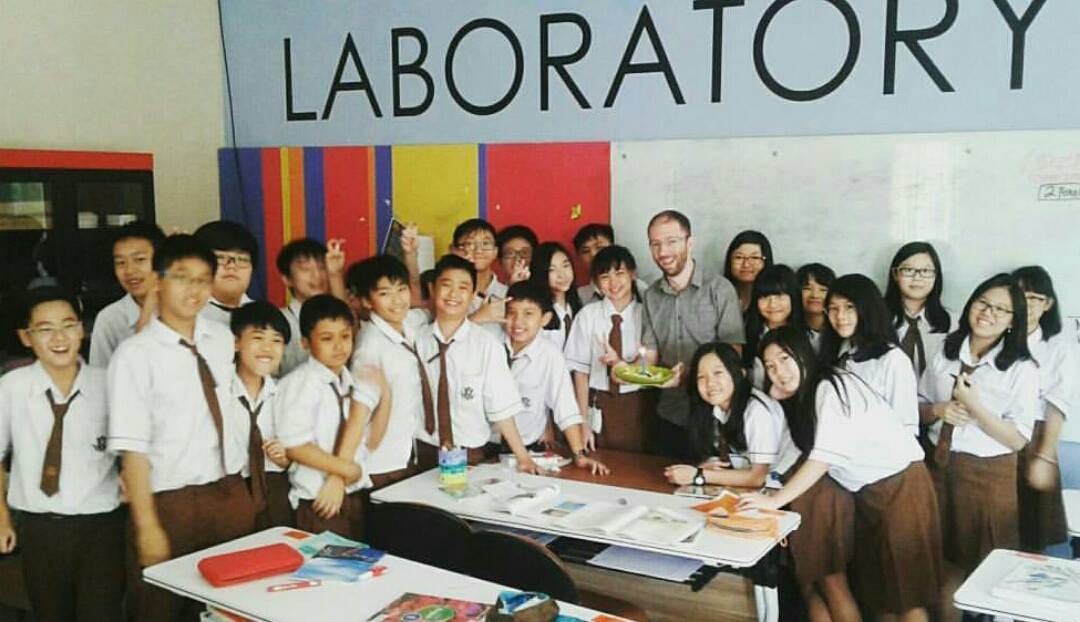
By the end of my time at SGS, I knew it was the right time to say goodbye. And in many ways, that farewell felt positive. I was ready for something new—ready to work at a school with a stronger educational foundation. I was ambitious to grow, to learn more, and to be part of a place where education wasn’t an afterthought. And that’s what I’ve found since moving on to Sampoerna Academy.
And that’s where I’ll pick up next.
The Beginning of the End of My Journey in Indonesia Began With the Pandemic & Ended With Sampoerna Academy
After I left Surabaya Grammar School and joined Sampoerna Academy in 2021, I had a pivotal conversation during my interview with John Murphy, the principal at the time. He asked if I would be willing to pursue a Master of Education degree and obtain formal teaching certification. That conversation really stuck with me and ultimately changed the direction of my career, goals, and relationships. I started looking around and eventually found a fairly affordable Master of Education program through the University of the People.
At that time, I was deeply involved in creating content for BookMattic, and I was worried. I had built up momentum, a steady rhythm of content creation (a following of 20,000+ and an Online Course as well as a Book Promotion Program), and I feared that taking a step back from it would slow things down—or even diminish what I had worked so hard to build. And in some ways, it did. I look back and realize that my content creation lost some steam during those years.
But the truth was, BookMattic wasn’t making much money. I enjoy doing it (and still do), but I had to support my family with something more solid. And this new opportunity at Sampoerna felt like a real step forward. It introduced me to a more structured, professionally grounded school environment, one that had educational goals and systems in place, unlike SGS.
The master’s degree took two years. It was a lot of work, and it demanded a lot of my time and energy. At times, it was draining me. But in the end, it helped shape me into a more qualified and confident educator. What I was learning in the program, I could immediately apply in my classroom. It gave me structure, language, and theory to back up the instincts I had already been building over the years.
Back to my time at Sampoerna Academy, as I first started working there in 2021, we were still fully online due to the pandemic. I was genuinely excited to join because, coming from Surabaya Grammar School, it felt like a clear step up in terms of educational quality and reputation. And in many ways, it was a step up.
But as time went on, especially once we returned to in-person teaching, I started to notice something that felt off. The environment, while clean and modern and aesthetically impressive, felt… sterile. The buildings are pristine, which should be a good thing. But there was something beneath the surface that made it feel more like a showroom than a living, breathing learning community.
Sampoerna Academy, like many private schools in Indonesia, is still a business. There’s a strong emphasis on maintaining a polished image, which in itself isn’t wrong—schools still need to present themselves well and show students what it means to be a good person (these are things I teach in my classroom). But I began to notice that the internal reality didn’t always match this image. Sometimes, the actions of teachers, students, or even principals didn’t align with the ideals the school promoted. And while the staff are highly qualified and dedicated, I occasionally saw management decisions that went against widely accepted educational practices and theory.
I understand that the school is trying to do a lot. Running a school is a big operation with many moving parts. But that might be part of the problem. Sampoerna Academy was trying to juggle seven or eight major initiatives at once, and it's hard to truly excel at any one of them if we had to focus on all of them. In my opinion, it would be far more effective to focus on doing a few things exceptionally well. That way, the school could build a strong identity and be recognized for real excellence in those areas, rather than trying to be everything at once.
There were definitely moments of deep frustration, especially with the lower primary classes and a lot of that had to do with navigating parent expectations. Sometimes, it felt like the parents wanted to dictate how we ran the classroom. They would complain about the tiniest things, like if their child didn’t get included in a group activity or if another student didn’t want to play with them that day. Of course, those concerns matter since they do affect the emotions of the students, but I know most of the time, kids will be kids, and you can’t really avoid it. Most of that comes down to parenting. However, as educators, we need to approach students and parents with patience and professionalism because young children need that guidance to learn how to work and grow together.
The worst was when small issues spiraled into a full-blown confrontation. I had to become not just a teacher, but a mediator, a counselor, and a calm presence, helping parents feel heard, while also helping students understand how to cooperate and treat each other with kindness. It wasn’t easy, but it was part of the job.
The workload itself was intense. Expectations were high—from parents, from principals, and especially from leadership at the Jakarta head office. Sometimes I had to take work home, which is something I had hoped to avoid, especially with a young family. The pressure could be overwhelming.
At the same time, this was also the first time I served as a homeroom teacher. I’d never held that role before, and it pushed me in all the right ways. It gave me a chance to build deeper relationships with my students and to support them beyond academics, helping them grow emotionally and socially, day by day. It was stressful, yes, but also incredibly rewarding.
Looking back, I wouldn’t change a thing. That experience helped me grow into a more responsible and well-rounded educator. It tested me and it taught me. I know that the educational skills, qualifications, and experience I developed during that time will serve me well in whatever comes next.
Sampoerna (and International School) Friendships
One of the best things about this transition to Sampoerna Academy was that I had the chance to work with someone I knew from my very first job in Indonesia—EF English First. Although Glendon and I never worked at the same campus back then, we knew each other from gatherings and shared events. Reconnecting at Sampoerna was unexpected but incredibly rewarding. Through him, I was also introduced to several other amazing people, including Fabio from Italy, who would become one of my closest friends here.
Glendon turned out to be an incredible coworker and friend. We shared a strong interest in reading, though his was more rooted in classic literature. He introduced me to books I’d never considered before—some that I ended up loving, and others… not so much. But that was the fun of it. We started our informal book club, just the two of us at first, choosing a book each month and rotating who picked. It became something I looked forward to. The thoughtful conversations, intellectual challenges, and shared appreciation for stories helped shape us.
The friendships I built with Fabio and others in our small circle were just as meaningful. We met up nearly every weekend, maybe more often than I should have, considering other responsibilities, but it was exactly what I needed at the time. It gave me a way to let loose, have real conversations, and share in building the memories of our family lives. They have kids too, so we planned playdates, which were perfect for my daughter and gave our families a chance to grow closer.
I finally found what I had been looking for all those years in Indonesia—friendships that felt like family.
And now, funnily enough, the timing seems to align for all of us. Glendon already returned to Australia just last year. This is the year I’m leaving Indonesia, and Fabio is moving on soon after me. It feels like we all hit a similar point of realization that it’s time. Time to take what we’ve learned, who we’ve become, and move forward into the next chapter of our lives. We’ve grown both as people and as educators, and now it’s time to bring that growth back to our home countries and continue the journey from there.
My Grand Return Home, Oh Sweet Home
Looking back on the past 14 years I’ve spent in Indonesia, I can say with full honesty that this experience has shaped me in ways I never could have imagined when I first boarded that plane at age 26. I arrived with a heart full of curiosity and very little experience, and I’m leaving with a heart full of gratitude, a deeper understanding of who I am, and a clear vision of where I want to go.
I’ve grown immensely as a teacher, father, husband, and human being. I’ve learned what it means to be patient when things don’t go your way, resilient when life gets unpredictable, and open-minded in the face of cultural differences. I’ve built lasting relationships with people from all over the world and had the honor of helping hundreds of students grow in their confidence, communication, and thinking.
But I’ve also come to understand the limits of what’s possible here, especially as a foreigner. Indonesia has given me so much, but there are real structural limitations when it comes to long-term growth. In my current role at Sampoerna Academy as an English Language Arts teacher, I’ve essentially reached the ceiling. There’s no real room to grow unless I choose to pursue a leadership path, like becoming a principal. And while that may be the natural next step for some, I’ve realized that’s not where my heart is.
The truth is, what excites me most is creating—developing learning content, building educational resources, writing, and helping people grow through meaningful ideas. I want to be part of the shift in education that goes beyond the classroom—into digital learning, lifelong learning, and accessible knowledge. That’s the kind of work I want to wake up for.
Those kinds of opportunities—especially in EdTech, instructional content creation, or learning strategy—are far more available in the U.S. than they are here. And not just available—they're thriving. The U.S. has the infrastructure, the demand, and the network to support the kind of work I want to do next. It’s not just about finding a better job—it’s about plugging into a larger ecosystem where I can make a bigger impact.
And I won’t be arriving empty-handed.
I’m bringing with me fourteen years of real-world experience—teaching across cultures, adapting to systems that weren’t always built for me, and building deep empathy along the way. I’ve led classrooms, created original learning content, experimented with digital education, built a brand from scratch, and stayed committed to helping people grow through books and lifelong learning. I’ve navigated challenges in a place where I was often the outsider—and I believe that perspective is incredibly valuable in a world that needs more understanding, more adaptability, and more creativity.
So this move isn’t just about me. It’s about bringing everything I’ve learned in Indonesia and using it to contribute in bigger ways. It’s about building bridges—between traditional education and innovation, between cultures, and between content and action.
This next chapter in the U.S. is a return to possibility. A chance to deepen my purpose. And a new way to serve, create, and connect—with more clarity than ever before.





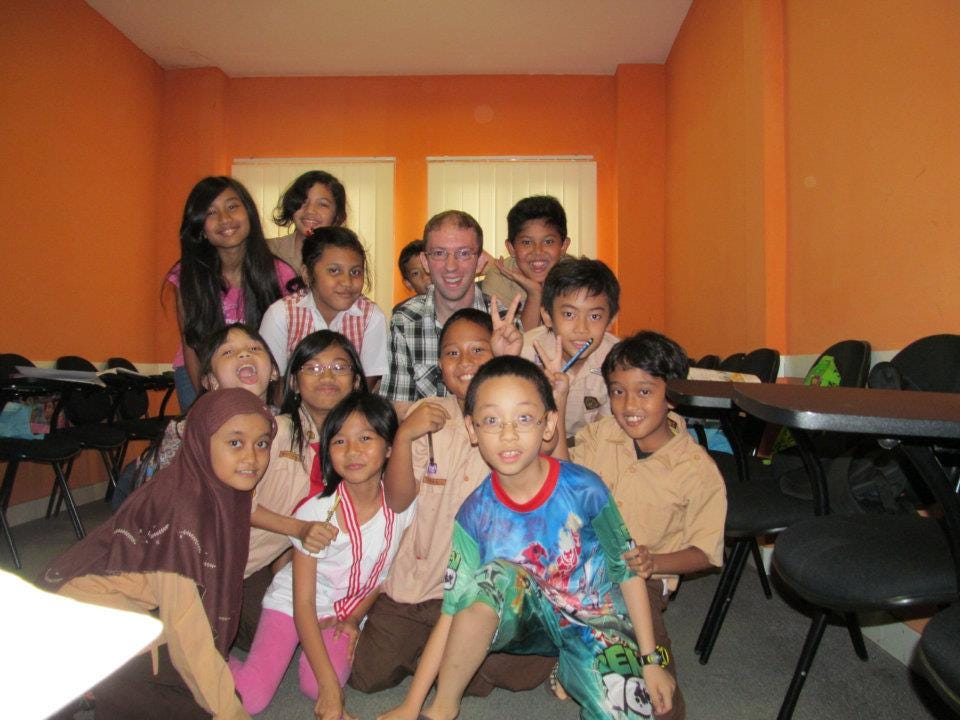
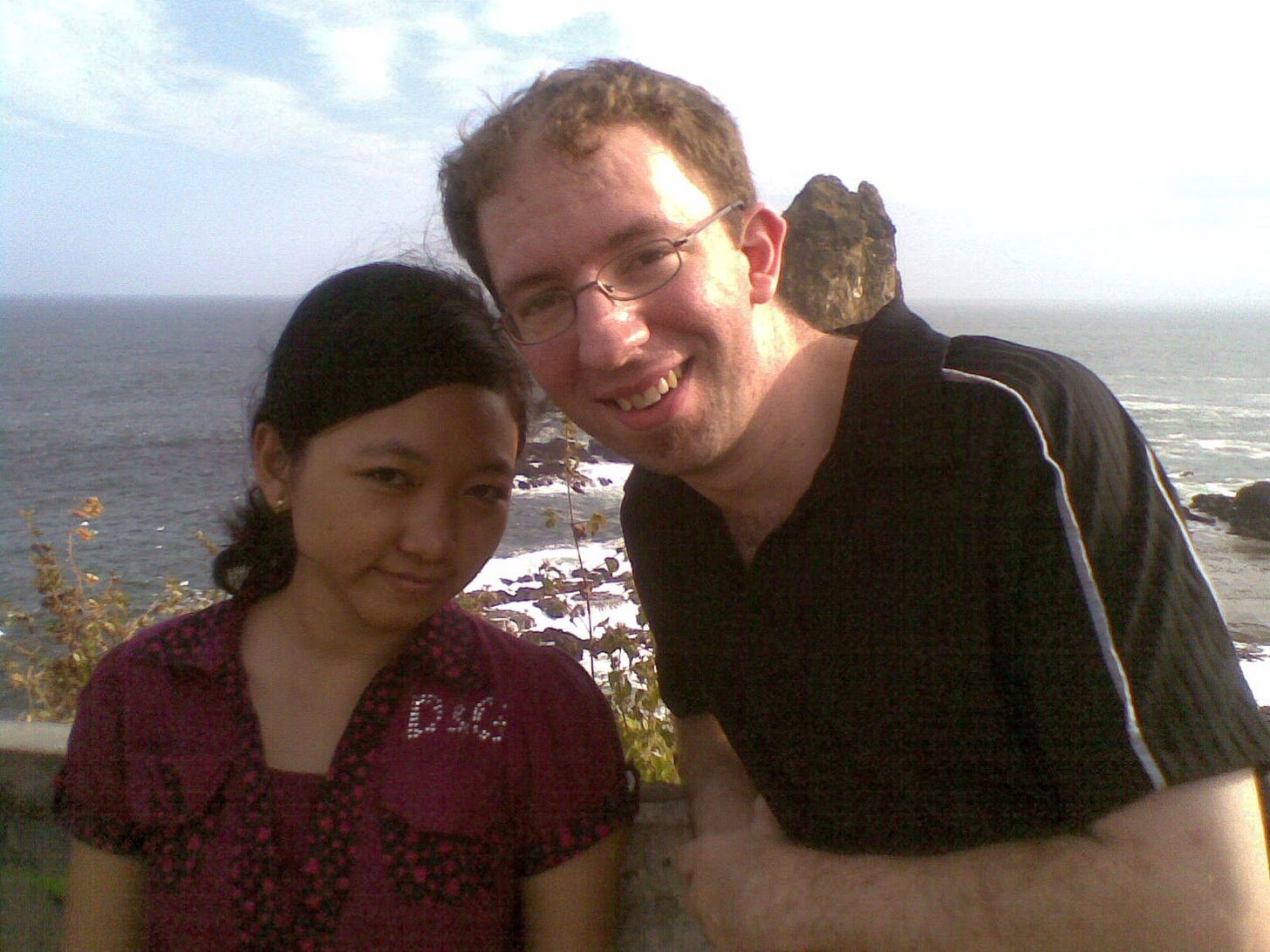
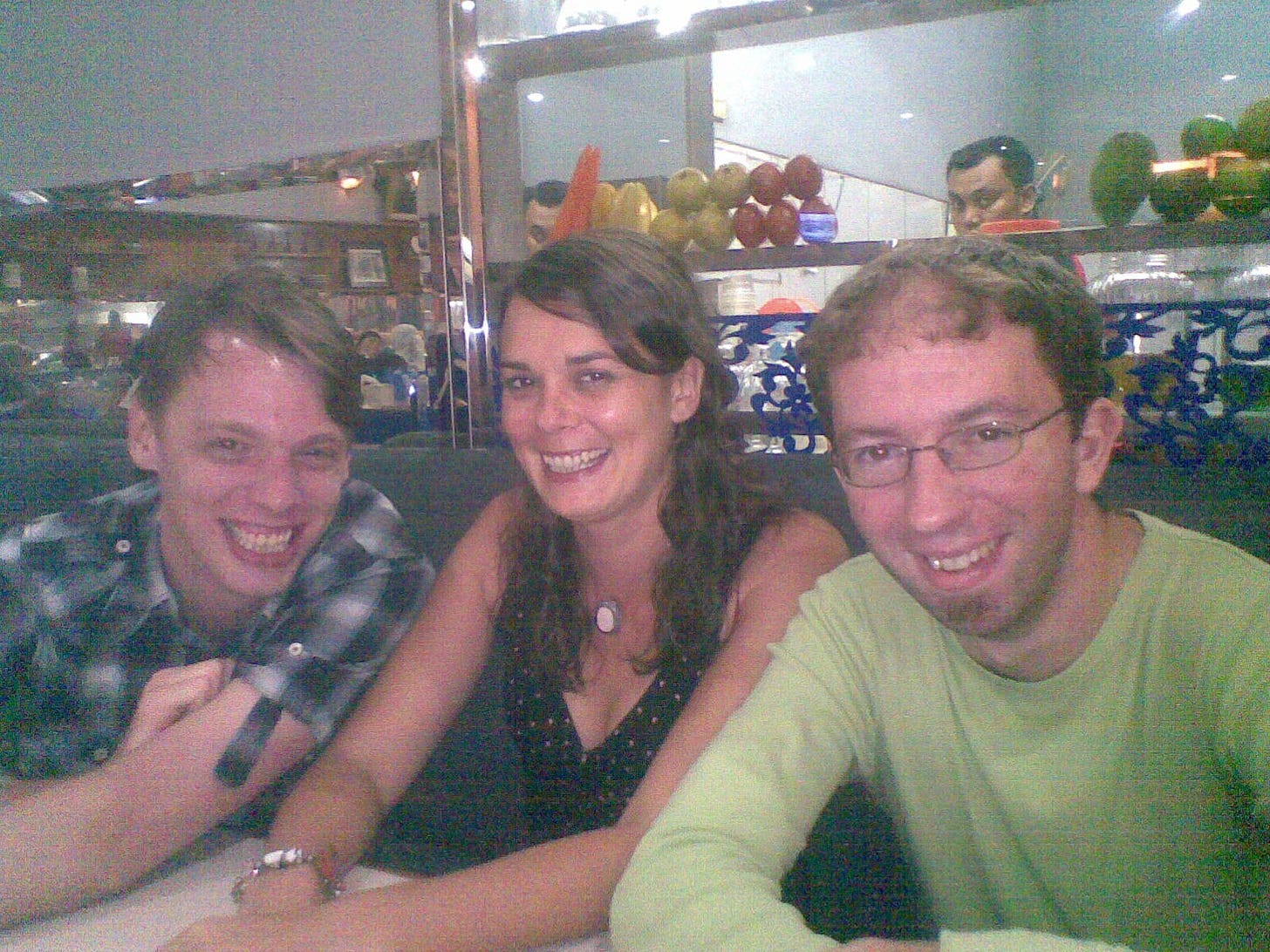
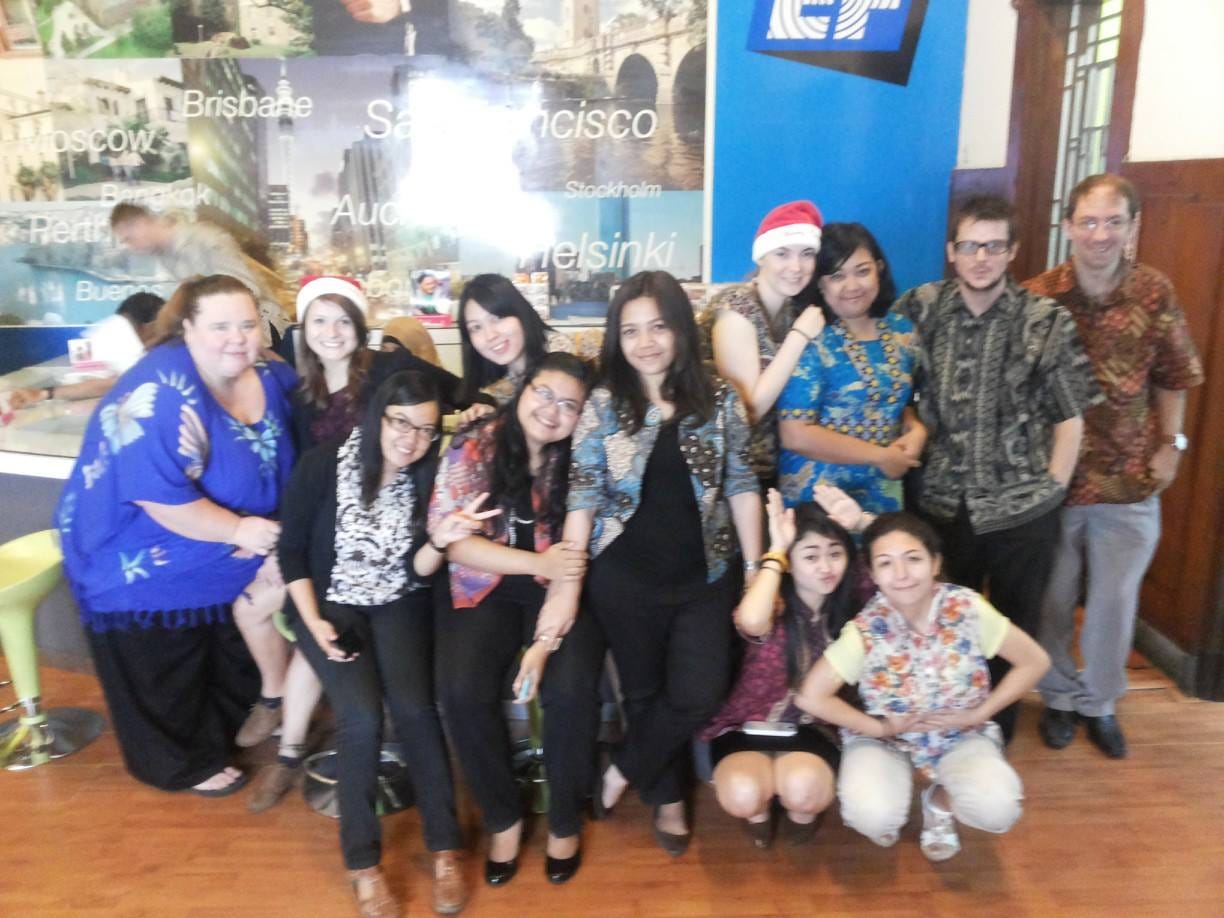
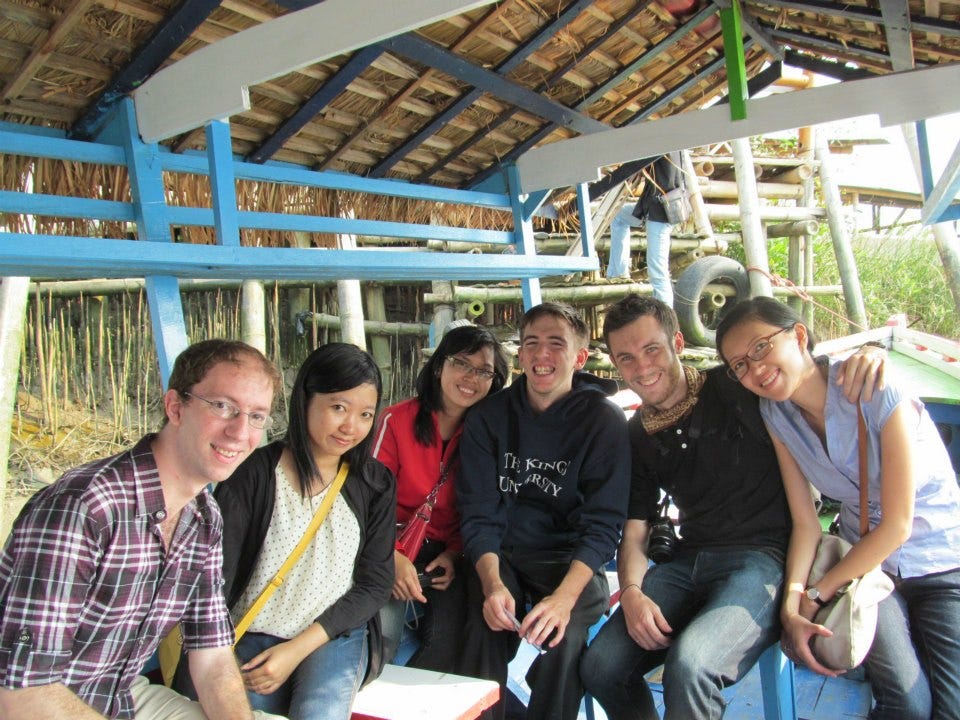
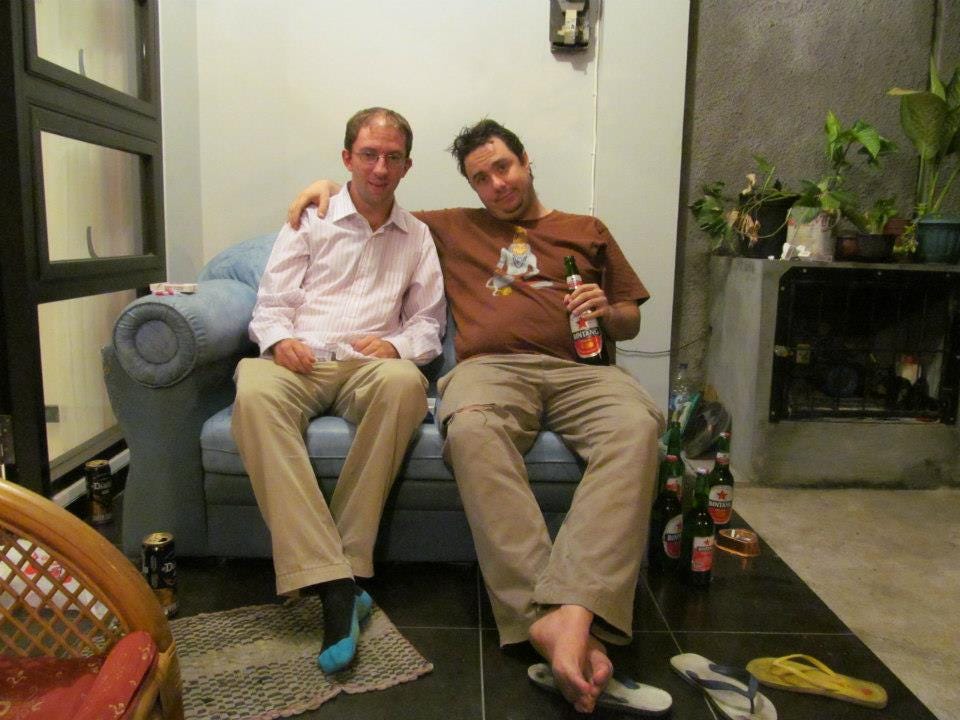



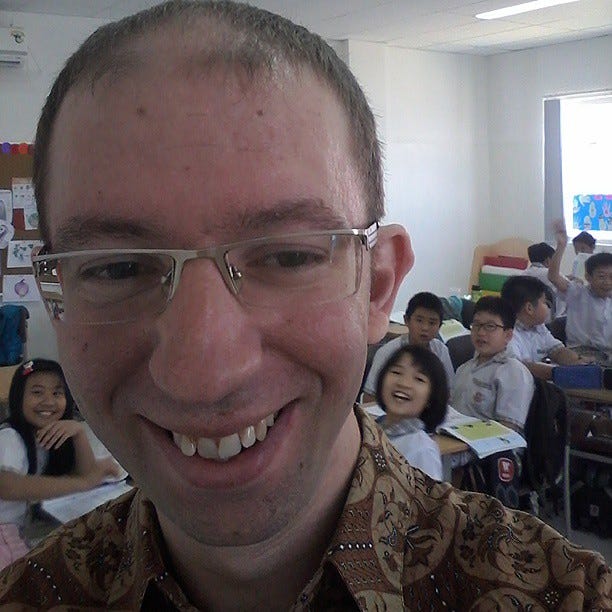
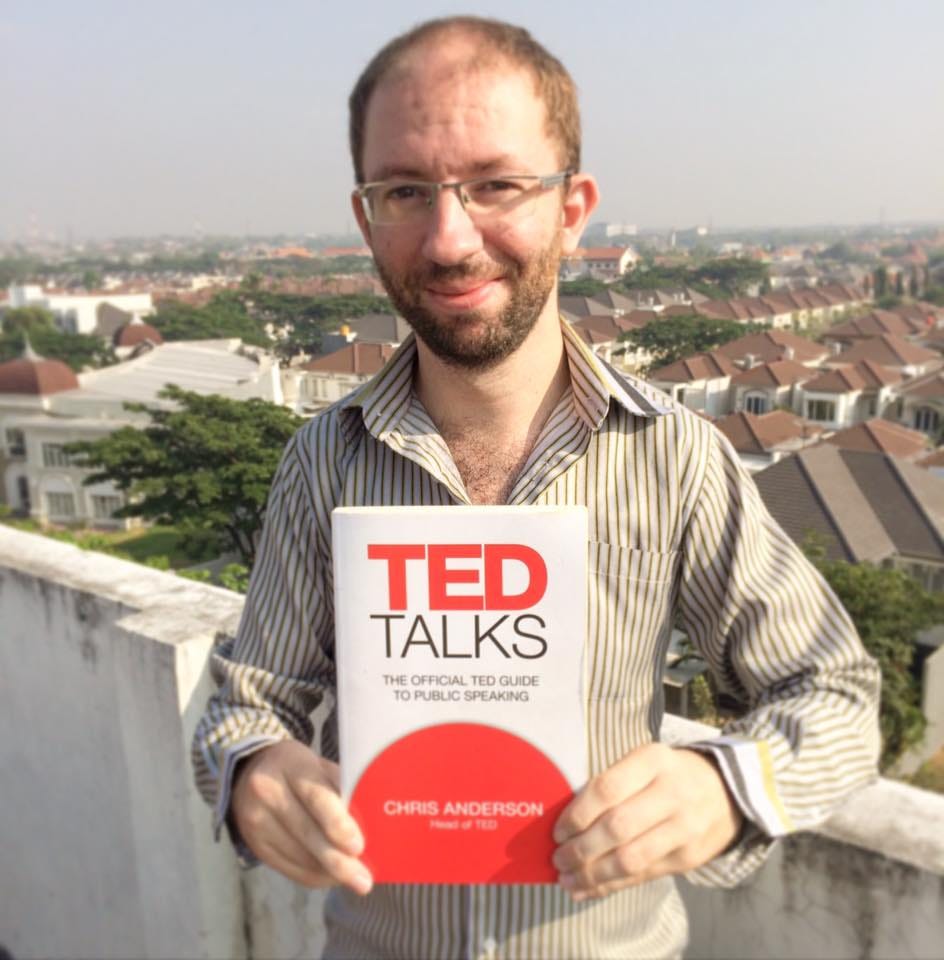

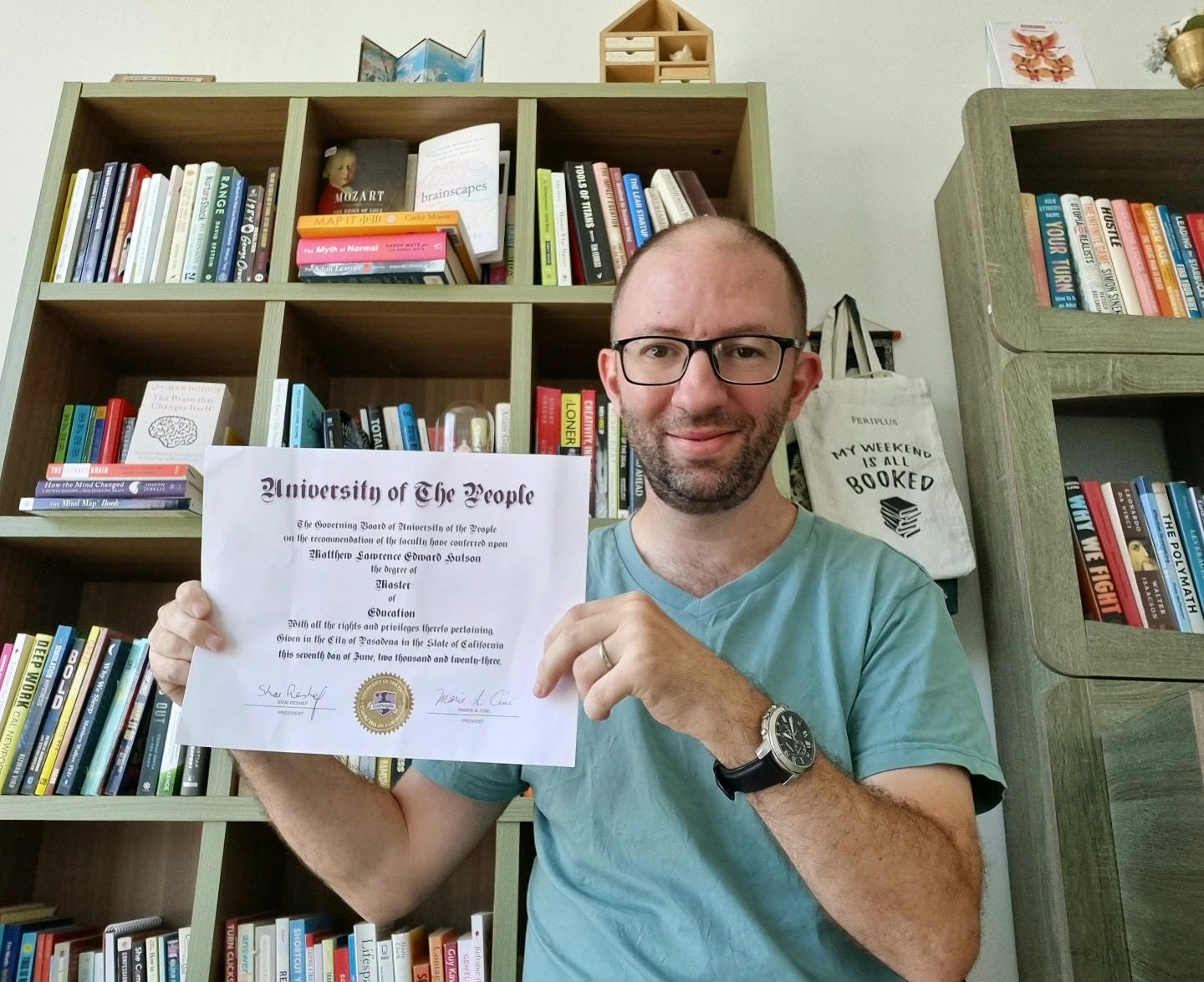
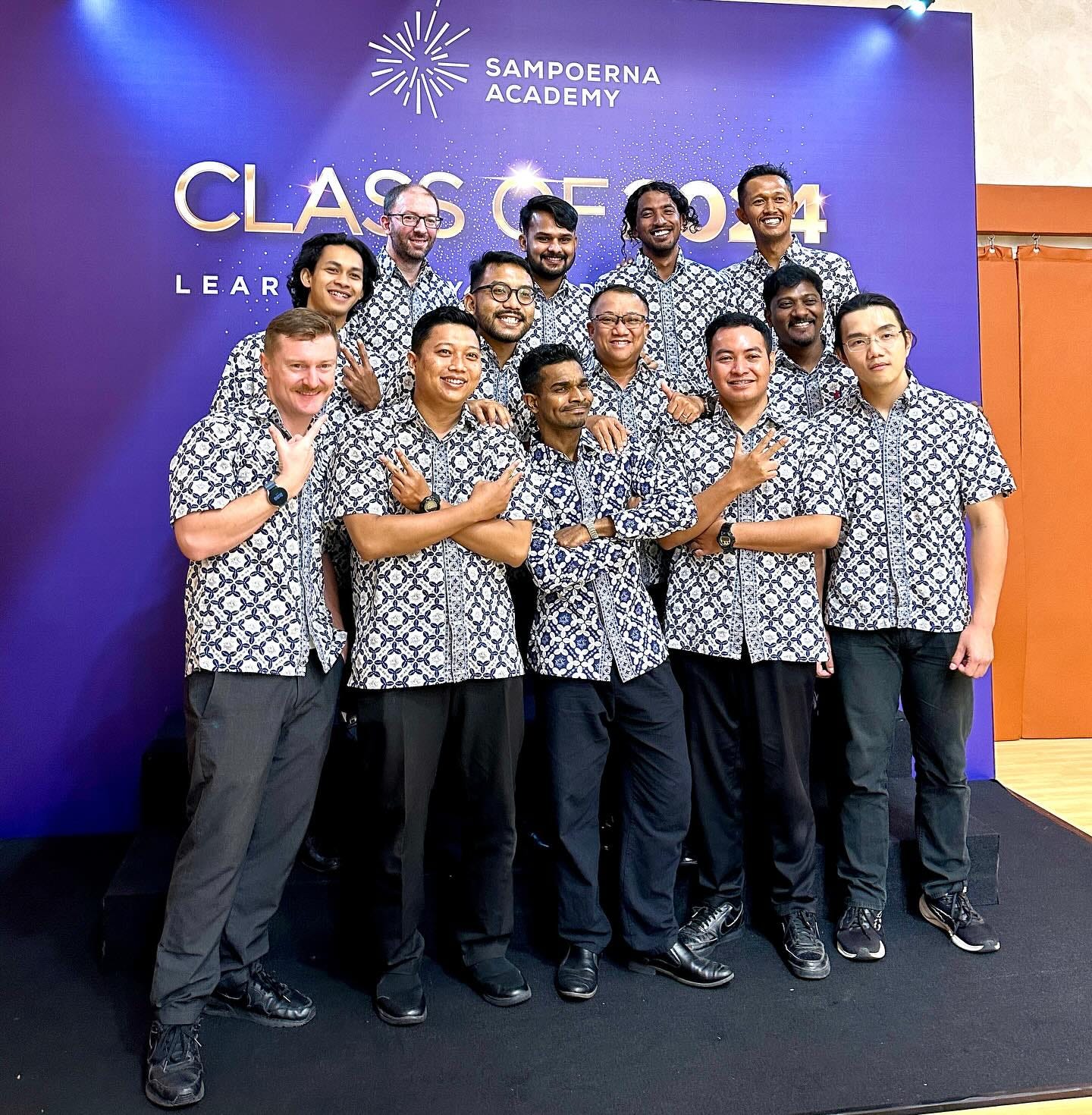
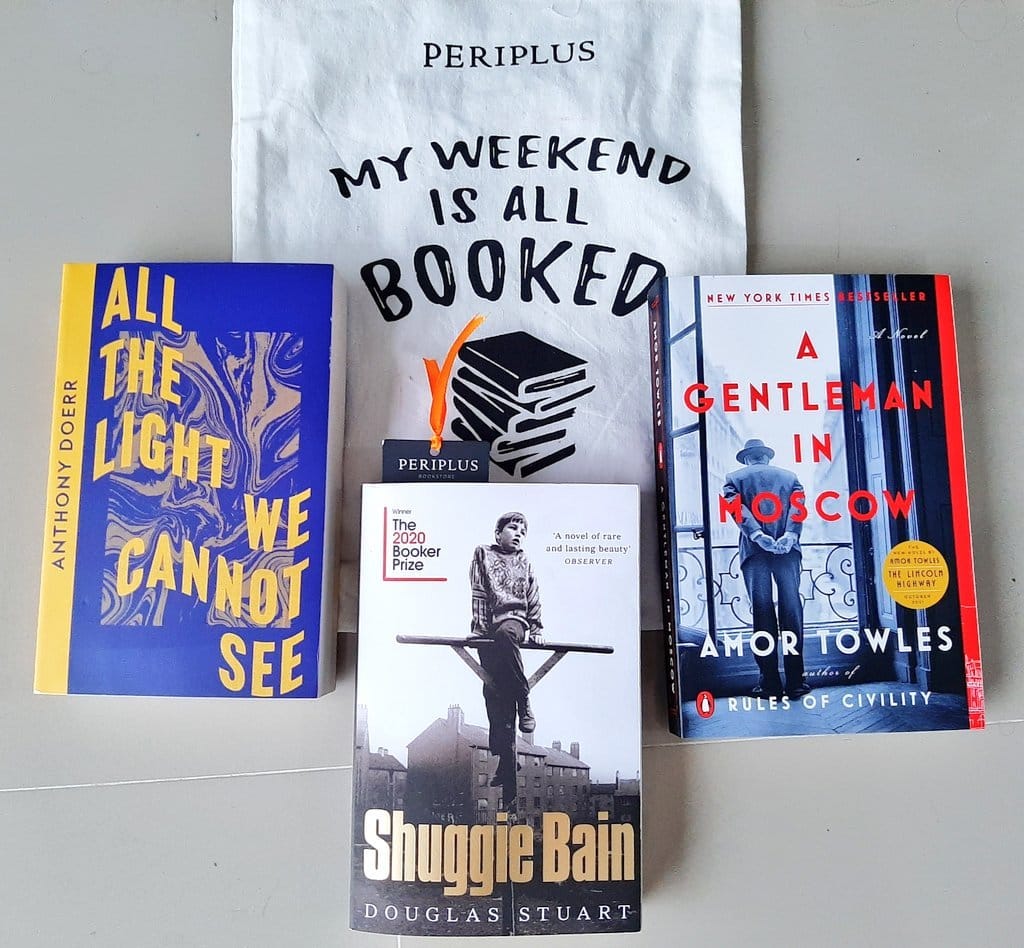
Hi Matt. Good luck for your next endeavor in USA. I am sure you would definitely make impact with all the experiences you had from indonesia. Thank your for showing resilient and consistency in becoming lifelong learners, it's something i would never forget about you.
This is Dave Hoyles
I met you maybe 13 years ago when we worked at different EF branches in Surabaya and you always struck me as a decent, genuine and 'good' human being. I am saddened to hear about you leaving I guess because it makes me question my own decisions and own future. Like you in the mini book I have questioned what my life would have been like had I stayed in Australia but I am happy with myself and the person I have become and the person Indonesia has made me. I know what you mean about friendships everything just seems transient with other expats and almost transactional and shallow with Indonesians. That doesn't mean I don't like them and enjoy their company but yeah I can tell that I am not and never will be one of their first priorities. As I get older and I'm 44 this month I am asking myself where do I see myself in the future and as much as I love Indonesia I suspect that there is more for me back home in Australia but I'm also left with lingering doubt asking myself is it too late?
I honestly wish you all the very best Matt you have shown to me the value of being a lifelong learner and as someone who has always loved reading I never used the term, lifelong learner, but now thanks to you it's something I can proudly apply to myself.
Thank you Matt and family and God bless, safe travels and keep us all informed about the life and adventures in your future.